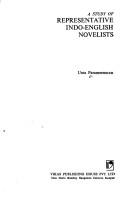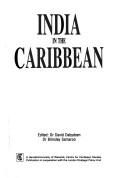| Listing 1 - 10 of 23 | << page >> |
Sort by
|
Book
Year: 1966 Publisher: Leiden ; Köln : E. J. Brill,
Abstract | Keywords | Export | Availability | Bookmark
 Loading...
Loading...Choose an application
- Reference Manager
- EndNote
- RefWorks (Direct export to RefWorks)
Indic fiction --- Littérature indienne (de l'Inde). --- History and criticism.
Book
ISBN: 9783447066136 344706613X Year: 2012 Publisher: Wiesbaden : Harrassowitz Verlag,
Abstract | Keywords | Export | Availability | Bookmark
 Loading...
Loading...Choose an application
- Reference Manager
- EndNote
- RefWorks (Direct export to RefWorks)
Littérature sanskrite --- Littérature indienne (de l'Inde) --- Indic literature --- Histoire et critique. --- Histoire et critique. --- History and criticism.
Book
ISBN: 9782868030849 286803084X Year: 2018 Volume: 84 Publisher: Paris : Collège de France,
Abstract | Keywords | Export | Availability | Bookmark
 Loading...
Loading...Choose an application
- Reference Manager
- EndNote
- RefWorks (Direct export to RefWorks)
Pour le philologue, le texte est un « terrain » qu’il entreprend d’explorer dans le menu détail et dont il retrace à la fois une généalogie et l’avènement du sens. Il s’agit d’explorer les traditions à l’intérieur desquelles le texte fait sens, ou contre lesquelles il s’inscrit, de relever aussi tout ce qui se rapporte à son sens — ses origines, ses développements, ses formes, ses nuances, ses particularités. Si le sens d’un texte n’est jamais singulier, et qu’il faut l’envisager comme « la somme des significations qu’il reçoit au cours de son histoire » (S. Pollock), c’est seulement dans un contexte culturel donné qu’il prend forme. Autant que du temps, le sens d’un texte est une fonction de l’espace, de l’univers et du réseau à l’intérieur duquel il est perpétué, transformé, reconfiguré. Nous avons essayé de mettre l’accent sur cet ancrage dans un espace culturel donné, et sur les pratiques de la philologie comme autant d’approches possibles de cet espace du sens.
Philologie --- Philologie sanskrite --- Philologie védique --- Intertextualité --- Philosophie --- Littérature indienne (de l'Inde) --- Actes de congrès. --- Traductions --- Histoire et critique --- Littérature indienne (de l'Inde)
Book
Year: 1984 Publisher: Mysore : Dhvanyaloka,
Abstract | Keywords | Export | Availability | Bookmark
 Loading...
Loading...Choose an application
- Reference Manager
- EndNote
- RefWorks (Direct export to RefWorks)
Book
ISBN: 9788862741194 Year: 2009 Publisher: Alessandria : Edizioni dell'Orso,
Abstract | Keywords | Export | Availability | Bookmark
 Loading...
Loading...Choose an application
- Reference Manager
- EndNote
- RefWorks (Direct export to RefWorks)
Indic literature --- Inde --- Littérature indienne (de l'Inde) --- History and criticism. --- Civilisation --- 20e siècle --- India --- Civilization. --- Histoire et critique --- Littérature indienne (de l'Inde) --- 20e siècle

ISBN: 0706904109 Year: 1976 Publisher: New Delhi Bombay Bangalore [etc.] : Vikas Publishing House,
Abstract | Keywords | Export | Availability | Bookmark
 Loading...
Loading...Choose an application
- Reference Manager
- EndNote
- RefWorks (Direct export to RefWorks)
Book
ISBN: 9789389165616 9789389165609 Year: 2022 Publisher: New Delhi : Bloomsbury,
Abstract | Keywords | Export | Availability | Bookmark
 Loading...
Loading...Choose an application
- Reference Manager
- EndNote
- RefWorks (Direct export to RefWorks)
Uneasy Translations: Self, Experience and Indian Literature interweaves the personal journey of an academic into reflections around self, language and translation with an eye on the intangibly available category of experience. It dwells on quieter modes of being political, of making knowledge democratic and of seeing gendered language in the everyday. In an unusual combination of real-life incidents and textual examples, it provides a palimpsest of what it is to be in a classroom; in the domestic sphere, straddling the 'manyness' of language and, of course, in a constant mode of translation that remains incomplete and unconcluded. Through both a poignant voice and rigorous questions, Kothari asks what it is to live and teach in India as a woman, a multilingual researcher and as both a subject and a rebel of the discipline of English. She draws from multiple bhasha texts with an uncompromising eye on their autonomy and intellectual tradition. The essays range from questions of knowledge, affect, caste, shame and humiliation to other cultural memories. Translation avoids the arrogance of the original; it has the freedom to say it and not be held accountable, which can make it both risky and exciting. More importantly, it also speaks after (anuvaad) rather than only for or instead, and this ethic informs the way Kothari writes this book, breaking new ground with gentle provocations.
Traduction --- Littérature indienne (de l'Inde). --- Indic literature --- Indic literature --- English language --- Société --- History and criticism. --- Translating. --- Social aspects --- India --- Languages --- Translating.
Book
ISBN: 9781137537973 Year: 2016 Publisher: Basingstoke : Palgrave Macmillan,
Abstract | Keywords | Export | Availability | Bookmark
 Loading...
Loading...Choose an application
- Reference Manager
- EndNote
- RefWorks (Direct export to RefWorks)
This book critically examines the postcolonial canon, questioning both the disproportionate attention to texts written in English and their overuse in attempts to understand the postcolonial condition. The author addresses the non-representation of Indian literature in theory, and the inadequacy of generalizing postcolonial experiences and subjectivities based on literature produced in one language (English). It argues that, while postcolonial scholarship has successfully challenged Eurocentrism, it is now time to extend the dimensions beyond Anglophone and Francophone literatures to include literatures in other languages such as Hindi, Telugu, Tamil, Tagalog, and Swahili.
Literature, Modern --- Literature, Modern --- Oriental literature --- Indic literature --- Indic literature --- Canon (Literature) --- Postcolonialism --- Littérature indienne (de l'Inde) --- Littérature indienne (de l'Inde) --- Canons littéraires. --- Postcolonialisme. --- History and criticism --- History and criticism --- Histoire et critique. --- Histoire et critique.

ISBN: 1870518004 9781870518000 Year: 1987 Publisher: London : Hansib,
Abstract | Keywords | Export | Availability | Bookmark
 Loading...
Loading...Choose an application
- Reference Manager
- EndNote
- RefWorks (Direct export to RefWorks)
East Indians --- Indic literature (English) --- Indiens (de l'Inde) --- Littérature indienne (de l'Inde) --- Congresses. --- History --- Région caraïbe --- Histoire et critique --- Histoire --- Littérature indienne (de l'Inde) --- Région caraïbe
Book
ISBN: 8131714160 Year: 2008 Publisher: New Delhi : Dorling Kindersley (India),
Abstract | Keywords | Export | Availability | Bookmark
 Loading...
Loading...Choose an application
- Reference Manager
- EndNote
- RefWorks (Direct export to RefWorks)
Indic literature --- Partition, Territorial, in literature. --- Political refugees in literature. --- Inde --- Littérature indienne (de l'Inde) --- History and criticism. --- 1947 (Partition) --- 20e siècle --- India --- History --- Influence. --- Histoire et critique --- Littérature indienne (de l'Inde) --- 20e siècle
| Listing 1 - 10 of 23 | << page >> |
Sort by
|

 Search
Search Feedback
Feedback About UniCat
About UniCat  Help
Help News
News